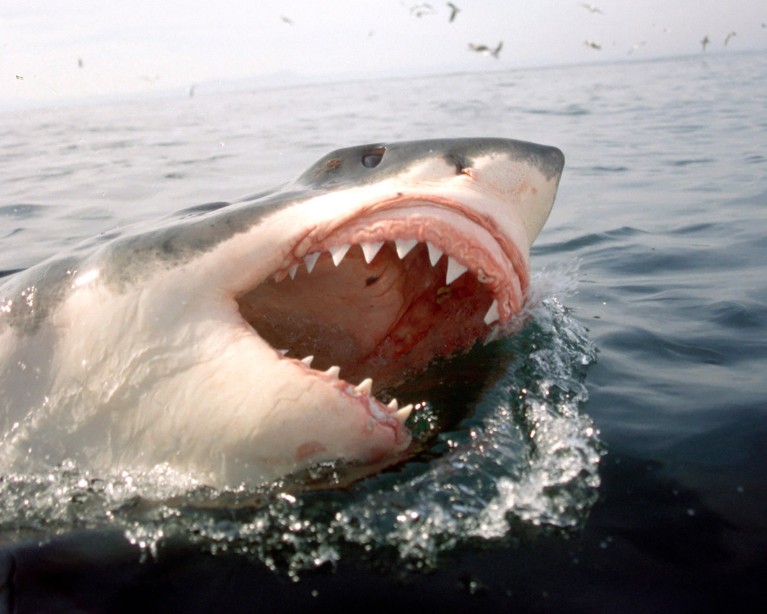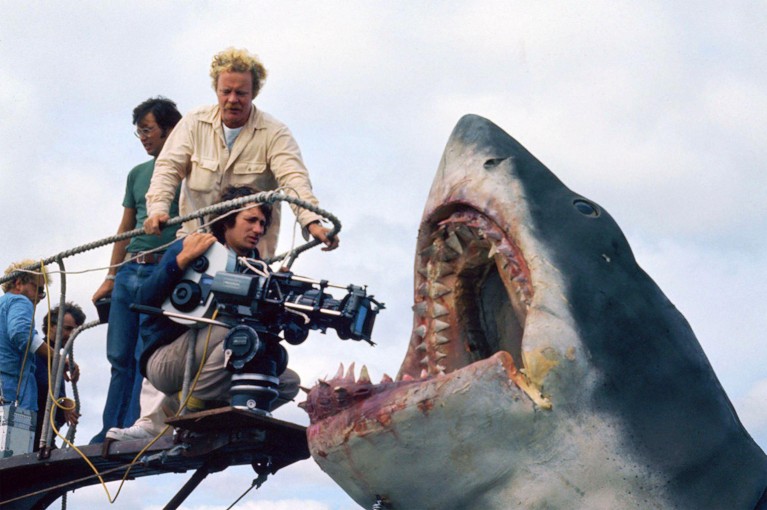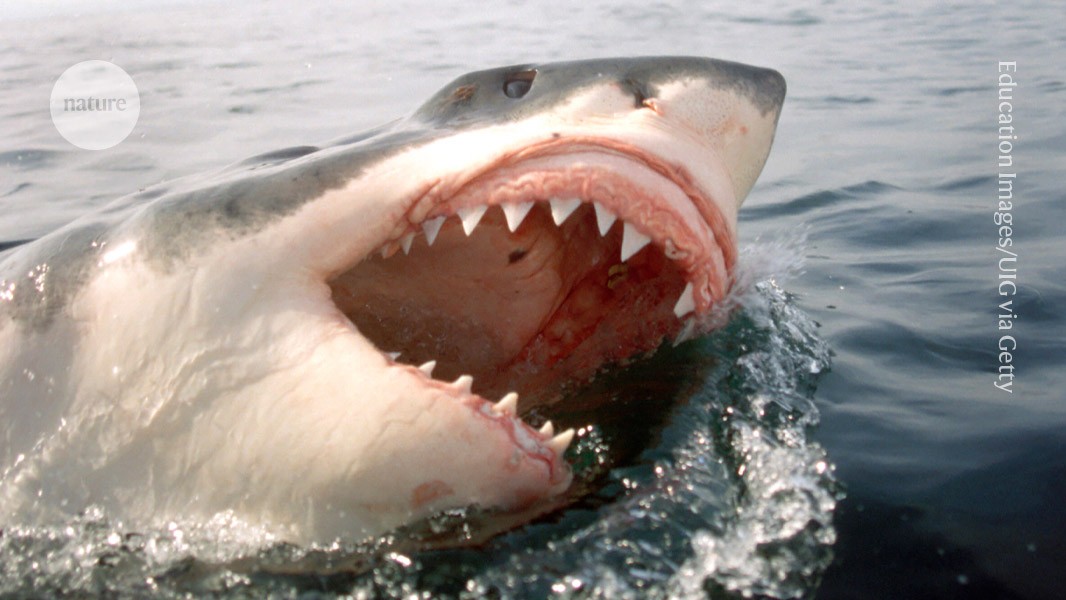
Great white sharks (Carcharodon carcharias) are threatened by hunting and poaching.Credit: Education Images/Universal Images Group via Getty
Fifty years ago today, cinema-goers were scared out of their seats — as well as the ocean, and even swimming pools — with the US release of the film Jaws. Director Steven Spielberg’s creation entertained and terrified in equal measure, and brought about an enduring change in how we perceive sharks.
David Shiffman is a marine conservation biologist based in Washington DC, and the author of Why Sharks Matter (2022). He spoke to Nature about how Jaws influenced the public perception of sharks and the importance of protecting marine life.
How did Jaws affect the public’s opinion of sharks?
There are some people who were afraid to even go into ankle-deep ocean water the summer Jaws came out. My mom says she didn’t want to go swimming at a pool. Around the same time, Star Wars came out, and no one was afraid that the Death Star was going to blow up Earth.
A colleague of mine coined the ‘Jaws effect’, which is now used in public-policy literature to explain how fictional portrayals of real-world issues impact what voters want leaders to do about those issues.
Has public opinion changed in the 50 years since Jaws was released?
More people now love sharks, are aware of shark conservation and want to help sharks than ever before. But there’s still widespread fear, and in some cases it’s quite pseudoscientific in nature.
How do these negative perceptions influence shark conservation?
Sharks were swimming in the ocean before there were trees on land and before Saturn had its rings. And in the past 50 years, they’ve experienced some of the worst population declines in their 400-million-year-plus history.
Unsustainable fishing practices are the largest threat to marine biodiversity. To save the ocean as a whole, including but not limited to sharks, we need to do more sustainable fisheries management. Scientists and environmental advocates in many cases know what we should do, but we’re not the ones in charge. We need to convince policymakers to make changes to conservation policy, and that requires public support.
When fear and panic aren’t ruling our emotions, it’s clear that we should be trying to protect these animals, not trying to eradicate them.

The film Jaws was released in the United States on 20 June 1975.Credit: Pictorial Press Ltd/Alamy
Why is shark conservation so important?
Humans depend on the oceans, which provide billions of people with a major source of food and tens of millions with employment and job security. To have a healthy food chain, you need to have a healthy top of the food chain. When we lose predators, the whole system can unravel.
How can we change public opinion on sharks?
Part of the problem is that most people hear about sharks only in the context of inflammatory media coverage or pseudoscientific nonsense.
Yearly, more people are bitten by other people on the New York City subway system than are bitten by sharks in the whole world.
The media and popular press definitely have a role to play. It would be great if they would educate about real things or at the very least stop saying nonsense.


